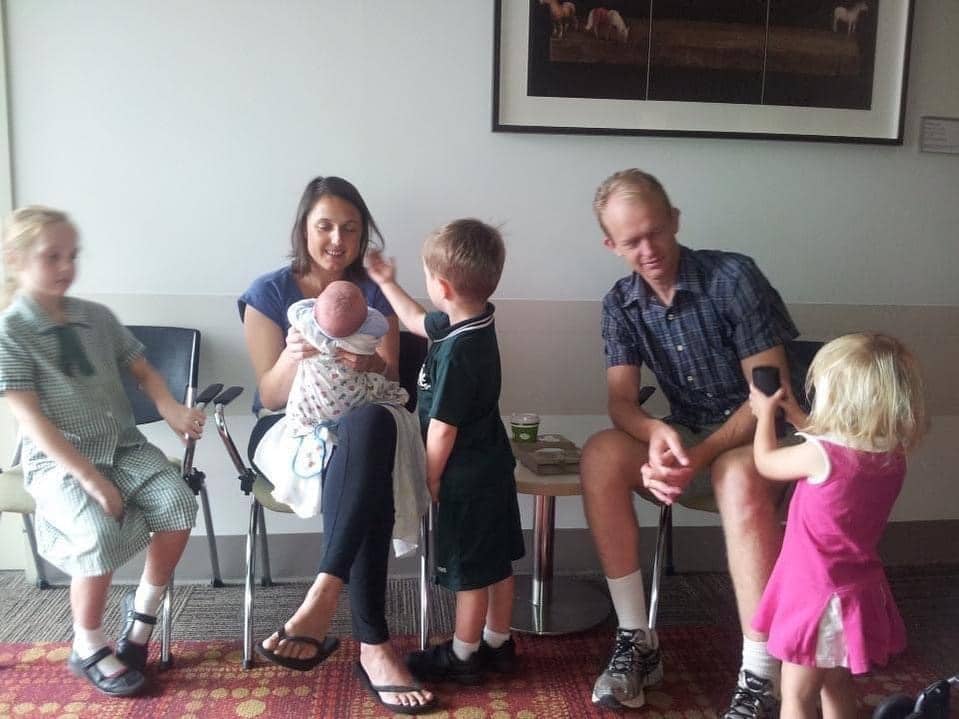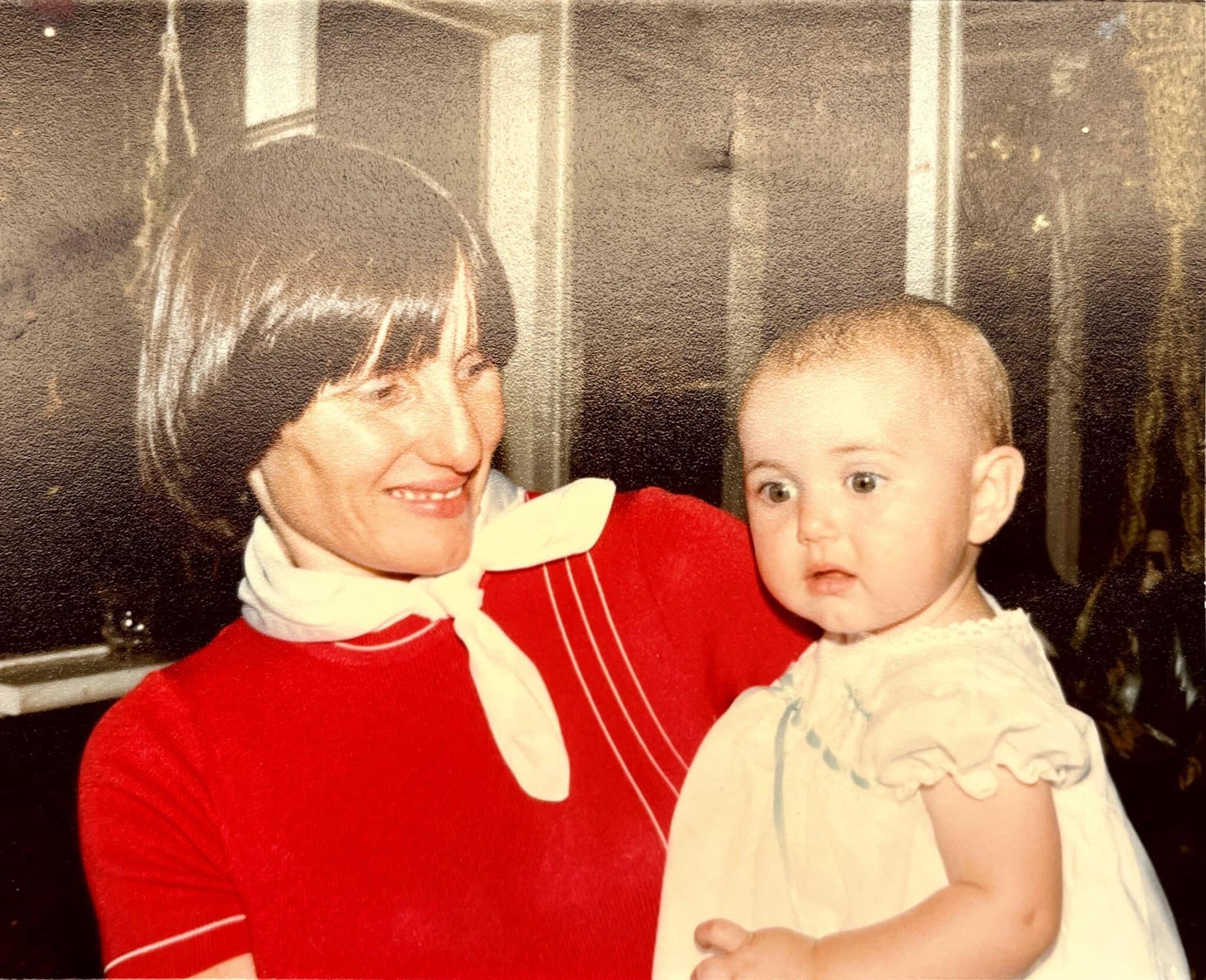
By Carrie McCormack
I believe that from the moment of conception, we are making up our mind about how we value motherhood.
When I was a teenager being educated in a Melbourne Catholic school by French nuns, my potential to be a mother was far from my mind. This is no fault of anyone in particular.
Advertising and media messaging played a role, but it was primarily the subtle infiltration of radical feminist ideas that shaped my thinking, ideas like women should try to equalise the dominance of men in the business world, while ignoring the beauty of motherhood itself.
I also had the impulse to avoid anything that made me vulnerable.
This was due to the experience of my family that suffered a breakdown when I was ten.
Self-reliance and resourcefulness became status symbols for me, instead of the mutual self-giving love that families ought to be modelled on.
However, the current popular trend in society is to look down on the role of mothers as if it is “behind the times.”
I would argue that motherhood, on the other hand, is always a step ahead, constantly prophetic and creative and powerfully influential.
According to GK Chesterton, where a specialist gets to do one thing excellently, a mother is the whole world to her children. I believe that the enormity of motherhood is what frightens us the most.
Mothering is a generational ministry. Whether or not the family unit is thriving in each generation is the indicator for how we are going as a society, as a church.
We know the saying from St John Paul II, “As the family goes, so goes the nation, and so goes the whole world.”
There’s a lot riding on how we are going in our motherhood.
Pope Francis in 2015 said that motherhood is more than childbearing—it is a life choice entailing sacrifice, respect for life, and commitment to passing on those human values which are essential for a healthy society.
Motherhood has an eternal impact. In this post-Christian era, motherhood is suffering and the church is a key part of the solution. Motherhood thrives where the Gospel thrives.
I think we have tried to make it easier by objectifying motherhood, yet God’s design for mothers is deeply personal.
Mothers cannot avoid bearing it in every way, from physical to emotional and everything in between. This reminds me of the teachings in St John Paul II’s Theology of the Body, where he states that our highest call is to imitate Christ and make a complete and sincere gift of ourselves. Motherhood embodies this entirely.
I have changed so much over the years. This transformation has been because of the saving power of what Jesus Christ has done for me. I feel compelled to promote motherhood everywhere I go as much as promote the Gospel, and I am equally compelled to promote life.
There is a problematic culture creeping up, even among those in our church, seen in a belief that babies do not need us, that they will be okay in early day care. Or if they do not go to early day care, they will fall behind. But the truth is, nothing can replace you.
You cannot outsource who mothers are to their children.
Some things can be outsourced without much consequence. However, the catch with parenting is that our children need a relationship with us, and that cannot be replaced by others—only compensated for.

What I am suggesting is that a woman’s motherhood—her role to her children—is irreplaceable and unrepeatable. It is utterly unique and therefore should not be taken lightly.
I undervalued my role as a mother and I wished away the mundane, repetitive nature of it in my early days.
What I encountered through the transforming power of prayer is that my pride and self-reliance had blinded me to the millions of meaningful small tasks that make a home and build lifelong, eternal relationships.
Motherhood is not a job, it is a foundational relationship with each member of the family.
Family is known as the domestic church, as a community of believers. In Familiaris Consortio, St John Paul II writes, “To the extent in which the Christian family accepts the Gospel and matures in faith, it becomes an evangelising community.”
So, the family is where parents evangelise their children, but where the children also evangelise their parents. Children have a huge capacity to show us unconditional love and reveal God’s truths. We are called to conversion within our own domestic church and our children help us to achieve it.
Here in Australia, women are increasingly experiencing maternal isolation and financial constraints, steering parents away from having the families they dreamt of.
Financial pressures are stressing the family. I heard the other day that the median house prices in Sydney have just reached $1.6 million! This is forcing families to move regionally to have the families and life they hope for.
I was shocked when I had my first baby to learn how quiet the streets and parks were during the weekdays.
Cultivating meaning has been vital for me to understand the important work of mothering. I have often dived into the scriptures, lives of the saints, and church writings and learned that mothering is kingdom work; that I am pastoring a “little church.”
This has given me a huge sense of purpose.
Guiding a ‘little church’ is a ministry akin to those of the wider church—such as teaching, preaching, and pastoring.
Mothering is imbued with prophetic significance, as it involves the collaborative act of creating a nurturing environment that fosters the complete realisation of our baptismal identity.
This process of regeneration is perpetual, growing both our personal faith and our communal Christian identity.
The two main models I draw great strength from is the perfect self-giving and receiving love of the Holy Trinity and the holy family. The main message I live by today is that we are called to be holy mothers, not perfect mothers.
Accountability in motherhood is unavoidable as my children watch everything I do and how I do it. I am constantly imparting the meaning of motherhood, of love and belonging to them.
We are called to walk with dignity, knowing that the world is watching. Mothering is a private ministry of care that publicly proclaims the Good News.
By our very presence, we are ministers of the Gospel of life. Pope Francis, in 2018, stated that marriage and family is “a silent homily for all”.
Let me finish with something that happened to me recently. I had the absolute joy of having my 19-year-old daughter spontaneously say to me that the greatest and most influential things she could do with her life would be to follow Jesus and become a mum.
So, join me in praying for our young people to build strong families and promote motherhood everywhere—it is something young women should not be afraid to consider with joy.
